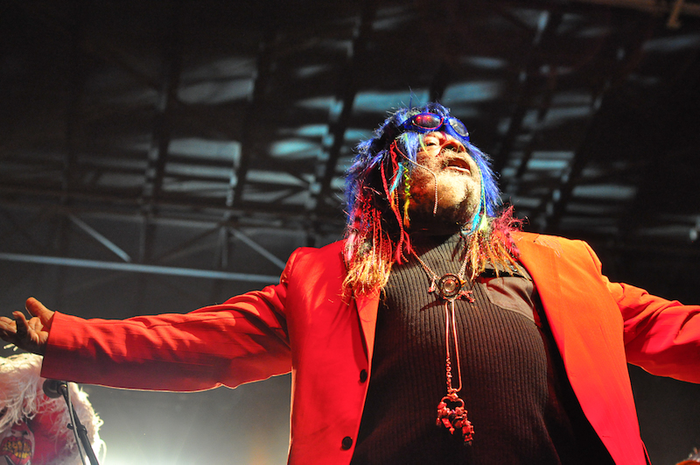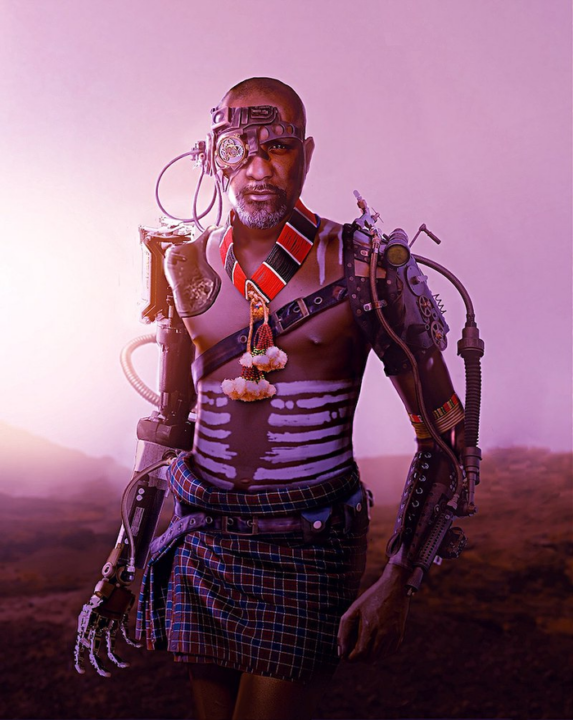The future seems promising for all of us.
We live in an era where technology is as much a part of our daily lives as breathing. Every culture had an impact on this technological period. So, do you believe the African diaspora would have been left behind? Certainly not. This is where Afrofuturism enters the picture.
Afrofuturism is a cultural trend that has gained popularity in recent decades. It is a future vision based on Black people’s experiences, traditions, and ambitions. An African diaspora-based movement strives to investigate the link between technology, science, and culture from a Black viewpoint. Afrofuturism evolved in the late twentieth century as African artists, authors, and intellectuals began to consider the possibilities of a future in which Black people play a crucial role in defining technology, science, and society. Afrofuturism is fundamentally about visualizing a better future for Black people. It is about building a community where Black people actively determine the future rather than passive consumers of technology and science. It is a method for Black people to regain agency and power in a world that has traditionally denied it to them.

George Clinton performing in 2009. Source: Wikimedia Commons
At the heart of Afrofuturism lies the concept of otherness, embodied by influential figures such as Octavia Butler, Samuel R. Delany, and Sun Ra. By merging science fiction with Egyptian mysticism, they created a mythical persona that inspires those seeking to explore this innovative concept. George Clinton, Ellen Gallagher, and Wanuri Kahiu have all been inspired by Afrofuturism, drawn to its unique perspective on how technology intersects with Black politics and aesthetics. It’s no secret that technology plays a crucial role in shaping our understanding and approach to the future, and Afrofuturism harnesses this cultural instrument to create truly unique and thought-provoking works. From music to visual art to film, the skills are a powerful platform for afro futuristic expression, captivating audiences and pushing boundaries.
The trailblazing blockbuster success “Black Panther” (2018), directed by Ryan Coogler, is one of the most notable instances of Afrofuturism in film. The film takes place in the fictional African nation of Wakanda, presented as a technologically advanced culture that remains concealed from the rest of the world. The film’s blend of future technology and African cultural allusions gained critical praise and economic success, propelling it to the box office. Other significant Afrofuturistic films include Jordan Peele’s “Get Out” (2017), which tackles themes of race and identity in a horror environment, and Boots Riley’s “Sorry to Bother You” (2018), which satirizes corporate culture and capitalism utilizing science fiction tropes.

“Serengeti Cyborg,” an artistic depiction of Afrofuturism by Fanuel Leul. Source: Wikimedia Commons
Jean-Michel Basquiat, a notable artist in the 1980s who integrated African art and cultural elements into his work, is one of the most prominent examples. Text, symbols, and pictures highlight his African background, identity, and social themes in his paintings. Mickalene Thomas, a modern artist who utilizes photography, collage, and painting to explore themes of identity, gender, and sexuality, is another famous example. Her art frequently contains bright colors and patterns, and she mixes Afrofuturism themes into her paintings to create a sense of otherworldliness.
Yet, Afrofuturism is more than a passing fad or fashion. It is a tremendous future vision with the ability to change the world we live in. Afrofuturism provides a potent antidote to the racism, injustice, and inequality that continue to afflict our society by creating a future in which Black people are free, empowered, and in charge.
Afrofuturism is a daring and essential movement in a society that has frequently ignored and excluded Black people from influencing the future. It encourages us to envisage a better future for all of us, not just Black people. It reminds us that our future is not preset but that we can actively influence and create it. As we move forward, let us embrace the imaginative spirit of Afrofuturism and collaborate to create a more fair, equitable, and inclusive society for everyone.

Anand Subramanian is a freelance photographer and content writer based out of Tamil Nadu, India. Having a background in Engineering always made him curious about life on the other side of the spectrum. He leapt forward towards the Photography life and never looked back. Specializing in Documentary and Portrait photography gave him an up-close and personal view into the complexities of human beings and those experiences helped him branch out from visual to words. Today he is mentoring passionate photographers and writing about the different dimensions of the art world.





